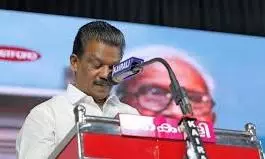
Kerala government abolshes the term 'colony', aims to remove hints of oppression
text_fieldsThe Kerala government has made a significant decision to remove the term "colony" from official records when referring to settlements of Scheduled Caste and Scheduled Tribe communities.
This move aims to eliminate a term that carries connotations of oppression and slavery.
On his final day as a state minister, K. Radhakrishnan, a member of the Communist Party of India (Marxist) and Kerala’s Minister for Welfare of Scheduled Castes, Scheduled Tribes, and Backward Classes, announced the change. He emphasized the historical context, noting that the term "colony" was introduced during British colonial rule and often used by landlords who controlled these areas.
Radhakrishnan said, "'Colony' is a term coined by oppressors and linked to slavery. Residents can suggest alternative names, and generic names derived from their suggestions should be used. Places should not be named after people to avoid disagreements." However, existing names that include people's names will remain unchanged.
The directive from the Scheduled Caste and Scheduled Tribe Development Department indicated that the terms "colony," "ooru," and "sanketham" are currently used for areas primarily inhabited by these communities. The directive suggested using terms like "nagar," "unnathi," and "prakriti" instead.
The term "colony" is often used derogatorily, with people from other castes referring to community members as "colony-wasi." This label has been used in cyberbullying and derogatory comedy, contributing to ongoing stigma and discrimination. Activists have long called for measures to address and combat these discriminatory practices.
In Kerala, there are 26,198 housing settlements designated for Scheduled Castes and 6,578 for Scheduled Tribes.





